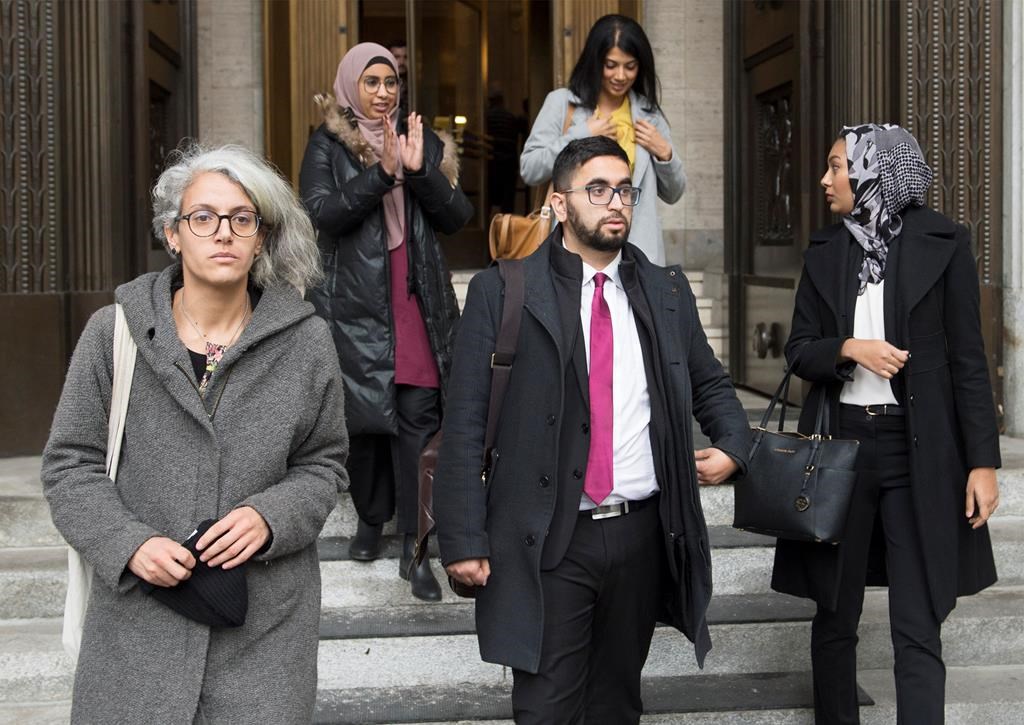Canadian civil rights groups are seeking leave at the Supreme Court after Quebec’s highest court rejected their challenge to the province’s religious symbol ban.

The Canadian Civil Liberties Association, the National Council of Canadian Muslims and a university student announced the decision on Wednesday in a statement, saying they plan to keep fighting for women and religious minorities.
“We told Quebecers and Canadians that we would not stop our work until this unjust law has been defeated,” said Mustafa Farooq, executive director of the National Council of Canadian Muslims.
“Respectfully, we believe that there are errors of law in the majority decision. Therefore, we will do what we promised. While teachers and other public sector workers are being forced out of their jobs, we will seek leave from the (Supreme Court) to halt the serious and irreparable harm that Bill 21 causes.”
Quebec’s secularism law, known as Bill 21, bars some public-sector employees — including teachers, police officers and judges — from wearing religious symbols in the workplace. It was adopted in the provincial legislature in June.

Get daily National news
The move comes after the Quebec Court of Appeal handed down a 2-1 ruling last week on the groups’ application for a stay of the religious symbols ban until a full legal challenge could be heard in Quebec Superior Court.
While the three judges acknowledged the law is causing harm that may be irreparable to teachers who wear the hijab, the majority agreed the province’s use of the notwithstanding clause means Bill 21 should not be suspended.
READ MORE: Quebec’s Bill 21 leads to ‘irreparable harm,’ civil liberties groups tell Court of Appeal
The applicants argue Bill 21 unfairly targets women and harms minority groups in the province. Noa Mendelsohn Aviv, equality director at the Canadian Civil Liberties Association, urged Canadians to stand together against the religious symbols ban.
“We can and must defeat this law,” she said in a statement.
The Quebec government has stood firm on the legislation in the wake of several legal challenges and criticism from political counterparts.
Premier François Legault has defended the law, saying it maintains support from the majority of Quebecers — but he acknowledges he wasn’t taken aback when he heard civil liberties groups are hoping to appear before the Supreme Court.
“I am not surprised,” he said. “I expected that they would go to the Supreme Court. So far, we won.”
He has also cautioned Prime Minister Justin Trudeau against taking any actions that go against the interests of the province.

— With files from Global News’ Raquel Fletcher and the Canadian Press






Comments
Want to discuss? Please read our Commenting Policy first.